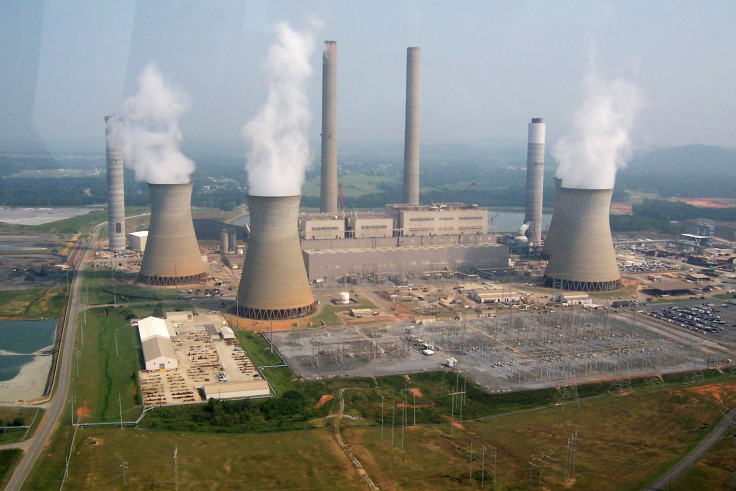Climate Change Politics Draw Dollars, Few Voters

WASHINGTON -- Politicians and outside groups are spending a lot of money this year to talk about energy and the environment. Republicans want the Keystone XL pipeline and to roll back Environmental Protection Agency standards. Democrats want stronger emission limits and to address climate change.
Neither side is likely to get what it wants, regardless of the results of the upcoming midterms -- and voters aren't showing much interest anyway. But both Republicans and Democrats see advantages in talking about the environment this year, seeding the ground for 2016 or turning it into a jobs message that resonates better with voters.
Nationally, the environment doesn't register as a top concern for most voters. A Gallup poll conducted last month found only 17 percent of respondents described climate change as “extremely important,” the lowest number for all the issues put before the participants.
But both parties are invested in making the issue a higher priority.
The League of Conservation Voters is spending $25 million in congressional campaigns this year, spokesman Jeff Gohringer said -- five times as much they spent in 2010 -- in order to get attention for climate change.
“When you force climate change in the dialogue, it actually does resonate with voters,” Gohringer said. “It takes a lot of time, it takes a lot of money, but we’re proving you can make climate change a campaign issue.”
He added: “Climate change will be playing a key role in 2016.”
Gohringer pointed to young voters -- who will make up an even larger segment of the voting public each election cycle -- who overwhelmingly see climate change as an established scientific fact.
“Voters and especially younger voters don’t question the science. The only place people are debating climate change is in the halls of Congress," Gohringer said.
People under age 35 who voted in 2012 cite climate change as a top concern, according to a poll conducted by Benson Strategy Group in conjunction with the League of Conservation Voters last year. Of those polled, 55 percent said climate change is an issue that must be addressed immediately and an additional 11 percent said it's a problem to address in the years ahead.
Companies are also wading into the election in support of environmental causes. The clothing company Patagonia is running a "Vote the Environment" campaign targeted at young people.
Senate Minority Leader Mitch McConnell has made energy a hot topic in his campaign, arguing that President Barack Obama’s Environmental Protection Agency restrictions will cost jobs for Kentuckians who work in the coal industry. (Earlier this year, Obama signed executive orders directing the EPA to increase regulations on emission standards, effectively shuttering coal-burning plants around the country.)
At a campaign rally on Wednesday, McConnell blamed Obama for costing the state 7,000 coal jobs. “This is another government-induced depression and another reason to stop these people," McConnell said, according to the Courier-Journal.
McConnell's approach makes sense, politically. A poll released this week by Western Kentucky University found that only 1 percent cite the environment or energy as the most important issue in the election. However, 17 percent cite jobs, the second-highest response.
When the election is over and the members head back to D.C., neither side is likely to be successful, regardless of who controls Congress.
Environmentalists are putting money into Senate races for friendly members, hoping Democrats will hold on to the chamber and stymie any further attempts to roll back Obama’s EPA regulations. "Our focus this year is on protecting the pro-environmental members of the Senate," Gohringer said.
But even if Republicans control both chambers of Congress, the GOP probably can't undo those regulations. Any change would need to come in the form of law, which Obama would not sign. The GOP's only other option would be to attach it to “must-pass” legislation, like a spending bill, and try to force the president’s signature. But even that is unlikely since energy issues will probably slide down the party’s priority list behind taxes and the Affordable Care Act. Some Republicans argued in favor of attaching approval of the Keystone Pipeline to a spending bill that would have avoided the government shutdown last year. But ultimately the GOP couldn't coalesce around a plan.
The current stalemate gives both sides another two years to try to win supporters. And their first task is to persuade the public to see the environment as a key issue when it comes time to vote in 2016.
© Copyright IBTimes 2024. All rights reserved.












